
-
-
-
Advance your career
In 3-9 months, gain the skills to break into a new career or take your career to the next level.
10th
View allADVANCED MANAGEMENT PROGRAMME (MANUFACTURING AND OPERATIONS)
View allAGNIVEER MR
View allAGNIVEER SSR
View allALLAHABAD HC RO/ARO
View allAnthropology (B.Sc Anthropology)
View allArtificial Intelligence
View allASSOCIATION OF CHARTERED CERTIFIED ACCOUNTANTS [ACCA]
View allB.A (Hons.) Business Economics
View allB.A Geography
View allB.A Hons (English)
View allB.A. - Public Administration
View allB.A. Economics
View allB.A. English
View allB.A. in Fashion and Textile Design
View allB.A. in Jewellery and Accessory Design
View allB.A. in Political Science
View allB.A. in Visual Communication
View allB.A. Journalism and Mass Communication
View allB.A. LLB
View allB.Com (Hons.)
View allB.Ed or Bachelor of Education
View allB.Ed or Bachelor of Education in Physical Science
View allB.Sc - Computer Science
View allB.Sc - Electronics
View allB.Sc - Forensic Science
View allB.Sc - Genetics
View allB.Sc - Geology
View allB.Sc - Home Science
View allB.Sc - Horticulture
View allB.Sc - Life Sciences
View allB.Sc - Microbiology
View allB.Sc - Statistics
View allB.Sc - Zoology
View allB.Sc in Animation
View allB.Sc in Physiology
View allB.Sc LLB (B.Sc LLB)
View allB.Sc. (Hons.) Chemistry
View allB.Sc. (Hons.) Computer Science
View allB.Sc. (Hons.) Mathematics
View allB.Sc. (Hons.) Physics
View allB.Sc. Agriculture
View allB.Sc. Biochemistry
View allB.Sc. Biotechnology
View allB.Sc. Nursing
View allB.Tech - Automobile Engineering
View allB.Tech - Biochemical Engineering
View allB.Tech - Ceramic Engineering
View allB.Tech - Genetic Engineering
View allB.Tech - Instrumentation Engineering
View allB.Tech - Mechatronics Engineering
View allB.Tech - Mining Engineering
View allB.Tech - Production Engineering
View allB.Tech - Telecommunication Engineering
View allB.Tech - Textile Engineering
View allB.Tech : Mechanical Engineering
View allB.Tech-Artificial Intelligence
View allB.Tech-Chemical Engineering
View allB.Tech-Civil Engineering
View allB.Tech-Computer Science Engineering
View allB.Tech-Electrical Engineering
View allB.Tech-Electronics and Communications Engineering
View allB.Tech-Mechanical Engineering
View allBA LLB (BA LLB)
View allBachelor of Accounting and Finance (BAF)
View allBachelor of Audiology & Speech Language Pathology (BASLP)
View allBachelor of Banking & Insurance (BBI)
View allBachelor of Business Administration (BBA)
View allBachelor of Computer Applications (BCA)
View allBachelor of Design (B.Des)
View allBachelor of Education (B.Ed)
View allBachelor of Education (B.Ed) in History
View allBachelor of Education (B.Ed) Psychology
View allBachelor of Education (BE.d) English
View allBachelor of Education (BEd) Commerce
View allBachelor of Education (BEd) in Physical Education
View allBachelor of Education in Hindi
View allBachelor of Education in Tamil [B.Ed] (Tamil)
View allBachelor of Elementary Education (B.El.Ed)
View allBachelor of Financial Markets (BFM)
View allBachelor of Fine Arts
View allBachelor of Management Studies (BMS)
View allBachelor of Mass Communication (BMC)
View allBachelor of Mass Media (BMMC)
View allBachelor of Multimedia Communication (BMMC)
View allBachelor of Optometry
View allBachelor of Optometry (BOPTM)
View allBachelor of Physical Education (B.P.Ed)
View allBachelor of Tourism and Travel Management (BTTM)
View allBachelor of Visual Communication (B.V.C)
View allBachelor of Visual Communication (BVC)
View allBachelor of Vocation (B.Voc) in Software Development
View allBachelors in Banking and Insurance (BBI)
View allBachelors of Commerce and Bachelor of Legislative Law (B.Com LLB)
View allBBA LLB
View allBEd Political Science
View allBIHAR CGL TEST SERIES
View allBIHAR CIVIL COURT
View allBIHAR DAROGA
View allBIHAR PROHIBITION CONSTABLE
View allBOB PO
View allBOB SO
View allBOI SO
View allBPSC HEAD MASTER
View allBPSC SANITARY & WM
View allBusiness Analytics
View allCANARA BANK PO
View allCAT
View allCAT Exam
View allCBI SO
View allCBSE 5
View allCBSE 7
View allCBSE 1
View allCBSE 11th
View allCBSE 12TH
View allCBSE 2
View allCBSE 3
View allCBSE 4
View allCBSE 6
View allCBSE 8
View allCBSE 9TH
View allCBSE CTET
View allCDS
View allCERTIFICATE IN BUSINESS ANALYTICS
View allCertificate Course in Accounting
View allCertificate Course in Banking
View allCERTIFICATE COURSE IN BANKING
View allCERTIFICATE COURSE IN BUSINESS ANALYTICS
View allCERTIFICATE COURSE IN C++
View allCERTIFICATE COURSE IN COMMUNICATIVE ENGLISH
View allCERTIFICATE COURSE IN COMPUTER APPLICATION [CCA]
View allCertificate Course in Fashion Design
View allCERTIFICATE COURSE IN FINANCIAL ACCOUNTING & TAXATION [CCFAT]
View allCERTIFICATE COURSE IN FRENCH
View allCERTIFICATE COURSE IN FUNCTIONAL ENGLISH
View allCERTIFICATE COURSE IN GERMAN
View allCERTIFICATE COURSE IN INFORMATION TECHNOLOGY
View allCertificate Course in Interior Design
View allCERTIFICATE COURSE IN INTERIOR DESIGN
View allCertificate Course in JAVA
View allCERTIFICATE COURSE IN JAVA
View allCERTIFICATE COURSE IN JOURNALISM
View allCERTIFICATE COURSE IN PHOTOGRAPHY
View allCERTIFICATE COURSE IN PHYSIOTHERAPY
View allCERTIFICATE COURSE IN SPANISH
View allCERTIFICATE COURSE IN SPOKEN ENGLISH
View allCertificate Course in Stock Market
View allCERTIFICATE COURSE IN STOCK MARKET
View allCertificate Course in Tally
View allCERTIFICATE COURSE IN TALLY
View allCERTIFICATE COURSE IN YOGA
View allCertificate courses in C ++
View allCERTIFICATE IN ACCOUNTING
View allCertificate in Animation
View allCERTIFICATE IN ANIMATION
View allCertificate in Auto CAD
View allCERTIFICATE IN AUTO CAD
View allCertificate in CAD
View allCERTIFICATE IN CAD
View allCertificate in Cloud Computing
View allCERTIFICATE IN CLOUD COMPUTING
View allCertificate in Computer Application
View allCERTIFICATE IN COSMETOLOGY
View allCERTIFICATE IN DISASTER MANAGEMENT [CDM]
View allCERTIFICATE IN ENGLISH
View allCERTIFICATE IN HINDI
View allCERTIFICATE IN HUMAN RESOURCES
View allCertificate in Information Technology
View allCERTIFICATE IN INSURANCE SERVICES
View allCERTIFICATE IN LABORATORY TECHNIQUES [CPLT]
View allCERTIFICATE IN PROJECT MANAGEMENT
View allCERTIFICATE IN TOURISM AND TRAVEL MANAGEMENT
View allCERTIFICATE IN WEB DESIGNING
View allCertificate in Web Designing.
View allCERTIFICATE PROGRAM IN SUPPLY CHAIN MANAGEMENT
View allCERTIFICATE PROGRAMME IN SALES AND MARKETING
View allCERTIFIED COURSE IN FOOD AND NUTRITION
View allCERTIFIED FINANCIAL PLANNER [CFP]
View allCHARTERED ACCOUNTANT
View allChartered Financial Analyst
View allchinese
View allCISF CONSTABLE/TRADESMEN
View allCIVIL SERVICES
View allCLAT
View allCLAT EXAMS
View allCloud Computing
View allCOMBINED GEO-SCIENTIST
View allCOMBINED MEDICAL SERVICES
View allContent Writing
View allCraftsmanship Course in Food Production
View allCRPF ASI/HC
View allCRPF CONSTABLE TRADESMAN
View allCRPF SI & ASI
View allCS (Company Secretary)
View allCUET
View allCyber Security
View allD.EL.Ed.
View allData Analytics
View allData Science
View allDigital Marketing
View allDiploma in 3D Animation
View allDiploma in Advertising and Marketing
View allDiploma in Airline, Travel and Tourism Management
View allDiploma in Animation and Multimedia
View allDIPLOMA IN ARCHITECTURE ENGINEERING
View allDIPLOMA IN AUTOMOBILE ENGINEERING
View allDiploma in Bakery and Confectionery
View allDIPLOMA IN BIOMEDICAL ENGINEERING
View allDIPLOMA IN CHEMICAL ENGINEERING
View allDIPLOMA IN CIVIL ENGINEERING
View allDiploma in Communicative English
View allDIPLOMA IN COMPUTER ENGINEERING
View allDIPLOMA IN COMPUTER SCIENCE AND ENGINEERING
View allDIPLOMA IN DENTAL HYGIENIST
View allDIPLOMA IN DENTAL MECHANICS
View allDiploma in education
View allDIPLOMA IN ELECTRICAL & ELECTRONICS ENGINEERING
View allDIPLOMA IN ELECTRICAL ENGINEERING
View allDIPLOMA IN ELECTRONICS ENGINEERING
View allDiploma in elementary education
View allDiploma in Engineering
View allDiploma in Event Management
View allDIPLOMA IN FINE ARTS
View allDiploma in Food and Beverage Services
View allDiploma in Gemology
View allDiploma in Hotel Management (DHM)
View allDiploma in Information Technology
View allDIPLOMA IN INFORMATION TECHNOLOGY
View allDiploma in Interior Designing
View allDiploma in Journalism and Mass Communication (DJMC)
View allDIPLOMA IN MECHANICAL ENGINEERING
View allDIPLOMA IN MECHATRONICS
View allDiploma in Medical Lab Technology
View allDiploma in Medical Laboratory Technology (DMLT)
View allDIPLOMA IN MINING ENGINEERING
View allDiploma in Multimedia
View allDiploma in Nursing
View allDiploma in Nursing Care Assistant (DNCA)
View allDiploma in Nutrition and Dietetics
View allDiploma in Office Management
View allDIPLOMA IN PETROLEUM ENGINEERING
View allDiploma in Photography
View allDiploma in Physiotherapy
View allDIPLOMA IN PRODUCTION ENGINEERING
View allDiploma in Radiological Technology
View allDiploma in Rural Healthcare
View allDiploma in Scriptwriting/Creative Writing
View allDiploma in Sound Recording
View allDiploma in Travel & Tourism
View allDiploma in Visual Merchandising
View allDiploma in X-Ray Technician
View allEmail-Marketing
View allEPFO
View allFashion Designer
View allFCI MANAGEMENT TRAINEE
View allFEDERAL BANK PO
View allFull-Stack Developer
View allGATE
View allGraphic Design
View allHARCO BANK
View allHPSC PGT
View allHSSC Canal Patwari
View allHSSC GRAM SACHIV
View allIB SA/EXE & MTS/GEN
View allIBPS CLERK
View allIBPS PO
View allIBPS RRB OFFICE ASSISTANT
View allIBPS RRB OFFICER SCALE 1
View allIBPS SO Exam
View allIBPS Specialist Officer Exams
View allICAR
View allIIBF JE
View allINDIAN AIRFORCE APPRENTICE
View allINDIAN BANK COST GUARD (GD/DB)
View allINDIAN BANK PO
View allINDIAN BANK SO
View allINDIAN ECONOMIC SERVICE
View allINDIAN ER.SERVICES
View allINDIAN FOREST SERVICE
View allINDIAN NAVY AA/SSR
View allIPPB
View allJH POLICE RO
View allJK BANK PO
View allJK POLICE CONSTABLE
View allJob Oriented
View allJSSC EXCISE AND PROHIBITION
View allKG
View allLAKHSMI VILAS BANK PO
View allLDCE
View allLIC AAO
View allLIC ADO
View allLIC HFL
View allLL.M - Criminal Law
View allLL.M - Cyber Law
View allLL.M - International Law
View allLL.M - Labour Law
View allM.A. - Public Administration
View allM.A. in Economics
View allM.A. in English
View allM.A. Political Science
View allM.A. Rural Development
View allM.A.in History
View allM.Sc - Geoinformatics
View allMachine Learning
View allMaster of Education (M.Ed)
View allMaster of Law (LL.M)
View allMaster of Mass Communication (MMC)
View allMasters in Journalism and Mass Communication (MJMC)
View allMasters of Business Administration (MBA)
View allMAT
View allMBA - Communication Management
View allMBA - Customer Relationship Management (MBA CRM)
View allMBA - Environmental Management
View allMBA - Healthcare & Hospital Management
View allMBA - Hospitality Management
View allMBA - Logistics and Supply Chain Management
View allMBA - Materials Management
View allMBA - Media Management
View allMBA - Natural Resource Management
View allMBA - Operations Management
View allMBA - Project Management
View allMBA - Retail Management
View allMBA - Risk Management
View allMBA - Rural Development Management
View allMBA - Sales Management
View allMBA - Sports Management
View allMBA - Sustainable Management
View allMBA - Technology Management
View allMBA-Finance
View allMBA-Hr
View allMBA-Insurance
View allMBA-IT
View allMBA-Marketing
View allMCM: Masters of Computer Management
View allMP PATWARI
View allMP PSC
View allMP TET
View allMPPSC FOREST SERVICE
View allNAINITAL BANK
View allNDA & NA
View allNIOS 10
View allNIOS 11
View allNIOS 12
View allNIOS D.EL.ED.
View allNTPC CBT
View allOICL RECRUITMENT
View allOSSSC RECRUITMENT
View allPATNA HC STENO
View allPGP - Tax Management
View allPost Graduate Diploma in Technical Writing
View allProgramming
View allProject Management
View allRBI ASSISTANT
View allRBI Grade B Exam
View allRRB ASSISTANT LOCO PILOT
View allRRB Group D.
View allRSCB
View allRSMSSB COMPUTOR
View allRSMSSB FOREST GUARD
View allRSMSSB INFORMATICS ASSISTANT
View allRSMSSB JE
View allRSMSSB LAB TECH
View allRSMSSB LIB
View allRSMSSB PATWARI
View allRSMSSB PHARMACIST
View allSBI Clerk
View allSBI Clerk 2024
View allSBI PO
View allSIDBI GRADE A
View allSIDBI GRADE B
View allSocial Media Marketing
View allSoft Skills
View allSoftware Development.
View allSSC SELECTION POST
View allUIIC ASSISTANT
View allUPPSC ASST.PRO
View allUPPSC NURSE
View allUPPSC PROGRAMMER
View allUPSSSC ATA
View allUPSSSC INSTRUCTOR
View allUPSSSC VDO
View allVCBL PO
View allWealth Management
View allWeb Designing
View allXAT
View allDiploma in Cosmetology
View all
-
-
-
Advance your career
In 3-9 months, gain the skills to break into a new career or take your career to the next level.
-
-
-
Advance your career
In 3-9 months, gain the skills to break into a new career or take your career to the next level.
-
-
-
Advance your career
In 3-9 months, gain the skills to break into a new career or take your career to the next level.
Arts And Humanities.
No courses found
Business
View allCertificate
View allComputer Science
No courses found
Graphic Design
No courses found
Health
No courses found
Information Technology
View allLanguage Learning
No courses found
Math And Logic
No courses found
Physical Science And Engineering
No courses found
Social Science
No courses found
Soft Skills
No courses found
-
-
-
Find your new career
Breakthrough pricing on 100% online degrees designed to fit into your life.
CERTIFICATE IN ANIMATION
No subjects found
Get started
-
-
-
Find your new career
Breakthrough pricing on 100% online degrees designed to fit into your life.
CERTIFICATE COURSE IN COMMUNICATIVE ENGLISH
No subjects found
CERTIFICATE COURSE IN FRENCH
No subjects found
CERTIFICATE COURSE IN FUNCTIONAL ENGLISH
No subjects found
CERTIFICATE COURSE IN GERMAN
No subjects found
CERTIFICATE COURSE IN SPANISH
No subjects found
CERTIFICATE COURSE IN SPOKEN ENGLISH
No subjects found
CERTIFICATE IN ENGLISH
No subjects found
CERTIFICATE IN HINDI
No subjects found
CERTIFICATE IN INSURANCE SERVICES
No subjects found
DIPLOMA IN FINE ARTS
No subjects found
Get started
-
-
-
Find your new career
Breakthrough pricing on 100% online degrees designed to fit into your life.
No courses found
Get started
-
-
-
Find your new career
Breakthrough pricing on 100% online degrees designed to fit into your life.
Certificate Course In Accounting
No subjects found
Certificate Course In Banking
No subjects found
Certificate Course In Interior Design
No subjects found
Certificate Course In Stock Market
No subjects found
Certificate Course In Tally
No subjects found
Get started
-
-
-
Find your new career
Breakthrough pricing on 100% online degrees designed to fit into your life.
Certificate Course In Fashion Design
No subjects found
Certificate In Auto CAD
No subjects found
Certificate In CAD
No subjects found
Chinese
No subjects found
Get started
-
Goals
Departments
-
INDIAN ECONOMIC SERVICE
Competitive |
INDIAN ECONOMIC SERVICE
The Indian Engineering Services (IES) exam, also known as the Engineering Services Examination (ESE), is a prestigious examination conducted by the Union Public Service Commission (UPSC) to recruit engineers for various government departments and organizations.

Runali Deb Roy
Last Update : 07 Jun 2023
Overview of the Indian Economic Service Exam
The Indian Economic Service (IES) exam is conducted by the Union Public Service Commission (UPSC) to recruit economists for various government departments and organizations. The IES exam consists of a written test followed by an interview.
The course content for the IES exam 2023 includes the following subjects:
General English: This section tests the candidate's proficiency in English language skills, including grammar, vocabulary, comprehension, and writing ability.
General Studies: This section covers a wide range of topics including current affairs, Indian polity, governance, social issues, environmental issues, science and technology, and economic development.
General Economics-I: This subject covers microeconomics and macroeconomics concepts, theories, and applications. Topics such as demand and supply analysis, market structures, national income accounting, inflation, monetary policy, fiscal policy, and economic growth are included.
General Economics-II: This subject focuses on applied economics and covers topics like international trade, economic development, public finance, environmental economics, industrial economics, and financial markets.
Indian Economics: This subject specifically covers the Indian economy, including topics such as planning in India, agriculture, industry, infrastructure, banking and finance, foreign trade, and demographic issues.
Candidates appearing for the IES exam are expected to have a strong foundation in economics and a good understanding of current economic issues. The syllabus for the IES exam is detailed and covers a wide range of topics in economics and related subjects.
It is important for candidates to refer to the official UPSC website or the notification for the specific IES exam year to get the updated and detailed syllabus for the exam.
Preparation Tips for Indian Economic Service Exam
- Engineering Mathematics: Linear Algebra, Calculus, Differential Equations, Probability, and Statistics.
- Civil Engineering: Building Materials, Solid Mechanics, Structural Analysis, Design of Steel Structures, Design of Concrete and Masonry Structures, Construction Practice, Planning, and Management, Fluid Mechanics, and Hydraulics, Hydrology, Water Resources Engineering, Environmental Engineering, Geotechnical Engineering, and Transportation Engineering.
- Mechanical Engineering: Mechanics of Materials, Theory of Machines, Vibrations, Design of Machine Elements, Fluid Mechanics, Heat Transfer, Thermodynamics, Power Engineering, Renewable Sources of Energy, Manufacturing Engineering, and Industrial Engineering.
- Electrical Engineering: Electrical Materials, Electric Circuits and Fields, Electrical and Electronic Measurements, Computer Fundamentals, Basic Electronics Engineering, Analog and Digital Electronics, Systems and Signal Processing, Control Systems, Electrical Machines, Power Systems, and Power Electronics
- Electronics and Telecommunication Engineering: Network Theory, Electronic Devices, Analog Circuits, Digital Circuits, Control Systems, Communication Systems, Electromagnetics, and Microwave Engineering.
- General Studies and Engineering Aptitude: Current issues of national and international importance, Engineering Aptitude covering Logical reasoning and Analytical ability, Engineering Mathematics and Numerical Analysis, General Principles of Design, Drawing, Importance of Safety, Standards, and Quality practices in production, construction, maintenance, and services, Basics of Energy and Environment, and Ethics and values in the Engineering profession.
Course Content
1. General Studies:
- Indian Polity and Governance
- Indian Economy
- Geography of India
- History of India
- Current Events
2. Quantitative Aptitude
- English Language
1. Paper I: Economics
- Microeconomics
- Macroeconomics
- International Economics
2. Paper II: Statistics
- Statistical Methods
- Data Analysis
- Econometrics
3. Paper III: Indian Economy
- Economic Planning
- Public Finance
- Monetary Policy
- Fiscal Policy
- Industrial Policy
- Foreign Trade Policy
4. Paper IV: General Studies
- Indian Polity and Governance
- Indian Economy
- Geography of India
- History of India
- Current Events
UPSC IES ELIGIBILITY CRITERIA 2023
The eligibility criteria for the Indian Economic Service (IES) exam conducted by the Union Public Service Commission (UPSC) in 2023 are as follows:
Nationality: The candidate must be a citizen of India or a subject of Nepal/Bhutan or a Tibetan refugee who came to India before 1st January 1962.
Age limit: The candidate must have attained the age of 21 years and must not have attained the age of 30 years as of 1st August 2023. There is a relaxation of age limit for candidates belonging to certain categories such as SC/ST/OBC, ex-servicemen, etc.
Educational qualification: The candidate must have a post-graduate degree in Economics/Applied Economics/Business Economics/Econometrics from a recognized university. Candidates who are in the final year of their post-graduate degree can also apply, but they must submit their proof of passing the exam before 1st August 2023.
Physical standards: The candidates must be physically fit according to the prescribed physical standards for admission to the Indian Economic Service Examination, 2023.
It is important to note that the above-mentioned eligibility criteria are subject to change, and candidates must refer to the official notification released by UPSC for the latest and accurate information regarding the same.
UPSC IES APPLICATION PROCESS 2023
The application process for the Indian Economic Service (IES) exam conducted by the Union Public Service Commission (UPSC) in 2023 typically involves the following steps:
Online Registration: Candidates need to visit the official UPSC website and complete the one-time registration process. They need to provide basic details such as name, date of birth, contact information, and educational qualifications.
Application Form: After successful registration, candidates need to fill out the detailed application form for the IES exam. They need to provide information about their educational background, work experience (if any), choice of examination center, etc.
Upload Documents: Candidates are required to upload scanned copies of their photograph and signature as per the specifications mentioned in the application form.
Application Fee: Candidates need to pay the prescribed application fee to complete the application process. The fee can be paid online through various modes such as net banking, debit/credit card, or offline through challan at designated bank branches.
Application Submission: After completing all the above steps, candidates need to review the application form and submit it online.
Admit Card: Once the application process is complete, candidates will be able to download their admit cards from the UPSC website. The admit card will contain details such as the exam date, time, and examination center.
It is important for candidates to carefully read and follow the instructions provided by UPSC during the application process. They should also keep track of important dates and notifications released by UPSC regarding the application process.
Please note that the application process for the IES exam may vary slightly from year to year. Therefore, candidates are advised to refer to the official UPSC notification for the specific IES exam year to get the detailed and accurate information regarding the application process.
- Duration 6 Months
- Level Beginner
- Lectures 12 Lectures
- Language English
- Enrolled 100+ Enrolled
- Recorded Video 35
- Notes 45
- MCQs 45
- PPTs 25
- Live Test Series 42
- E-Book 40
Related Courses
-
IPPB
Price Rs. 6999.00 -
IBPS RRB Office Assistant
Price Rs. 6999.00 -
INDIAN BANK SO
Price Rs. 6999.00
UPSC IES SELECTION PROCESS
The selection process for the Indian Economic Service (IES) exam conducted by the Union Public Service Commission (UPSC) in 2023 typically involves the following stages:
Stage 1: Written Examination
Objective Type Papers: The written examination consists of two objective type papers - General English and General Studies. These papers test the candidate's knowledge and understanding of English language skills, current affairs, general knowledge, and related subjects.
Conventional Type Papers: The written examination also includes conventional type papers in three subjects - General Economics-I, General Economics-II, and Indian Economics. These papers assess the candidate's knowledge and understanding of economics concepts, theories, and their application in the Indian context.
Each paper is of a certain duration and carries a specific weightage of marks.
Stage 2: Interview/Personality Test
Candidates who qualify the written examination are called for the interview/personality test.
The interview assesses the candidate's personality traits, communication skills, depth of knowledge, and ability to handle various situations.
The interview carries a specific weightage of marks.
Final Selection
The final selection of candidates is based on the combined marks obtained in the written examination and the interview/personality test.
A merit list is prepared, and candidates are selected based on their ranks in the merit list.
The number of candidates selected depends on the number of vacancies available.
It is important for candidates to note that the selection process may be subject to change, and they should refer to the official UPSC notification for the specific IES exam year for detailed and accurate information regarding the selection process.
Additionally, candidates are advised to prepare thoroughly for each stage of the selection process, including both the written examination and the interview/personality test, to maximize their chances of success in the IES exam.

Course Structure
1
1. Preliminary Examination
1. General Studies:
- Indian Polity and Governance
- Indian Economy
- Geography of India
- History of India
- Current Events
2. Quantitative Aptitude
- English Language
2
2. Main Examination
1. Paper I: Economics
- Microeconomics
- Macroeconomics
- International Economics
2. Paper II: Statistics
- Statistical Methods
- Data Analysis
- Econometrics
3. Paper III: Indian Economy
- Economic Planning
- Public Finance
- Monetary Policy
- Fiscal Policy
- Industrial Policy
- Foreign Trade Policy
4. Paper IV: General Studies
- Indian Polity and Governance
- Indian Economy
- Geography of India
- History of India
- Current Events
Start Learning Today
Financial aid available
- Taught by top companies and universities
- Affordable programs
- Apply your skills with hands-on projects
- Learn on your own schedule
- Course videos and readings
- Graded quizzes and assignments
- Shareable Certificate upon completion
12 Lessons
100 Seats
6 Months
INDIAN ECONOMIC SERVICE
12 Lessons
100 Seats
6 Months
INDIAN ECONOMIC SERVICE
12 Lessons
100 Seats
6 Months
INDIAN ECONOMIC SERVICE
12 Lessons
100 Seats
6 Months
INDIAN ECONOMIC SERVICE
12 Lessons
100 Seats
6 Months
INDIAN ECONOMIC SERVICE
Frequently Asked Questions
The Indian Economic Service (IES) exam is conducted by the Union Public Service Commission (UPSC) to recruit candidates for various economic positions in the Government of India. It is a prestigious exam that assesses candidates' knowledge and understanding of economics and related subjects.
The eligibility criteria for the IES exam include educational qualifications, age limit, and nationality. Candidates should have a postgraduate degree in Economics/Applied Economics/Business Economics/Econometrics from a recognized university. The age limit is typically between 21 and 30 years, and candidates must be Indian citizens or fulfill certain nationality criteria.
To prepare for the IES exam, candidates can enroll in coaching institutes or online platforms like Matriye Academy that offer comprehensive study materials, mock tests, and guidance from subject experts. It is important to create a study plan, cover the entire syllabus, and practice previous year question papers to understand the exam pattern.
The selection process for the IES exam involves a written examination and an interview/personality test. The written examination consists of multiple papers covering general studies, general economics, and Indian economics. Candidates who qualify the written exam are called for the interview/personality test, which assesses their knowledge, communication skills, and personality traits.
Matriye Academy offers specialized courses and study materials designed specifically for the IES exam. With experienced faculty and comprehensive resources, Matriye Academy provides guidance and support to students in understanding the exam pattern, mastering the subjects, and improving their overall preparation. Additionally, Matriye Academy conducts mock tests and provides personalized feedback to help students track their progress and identify areas of improvement.





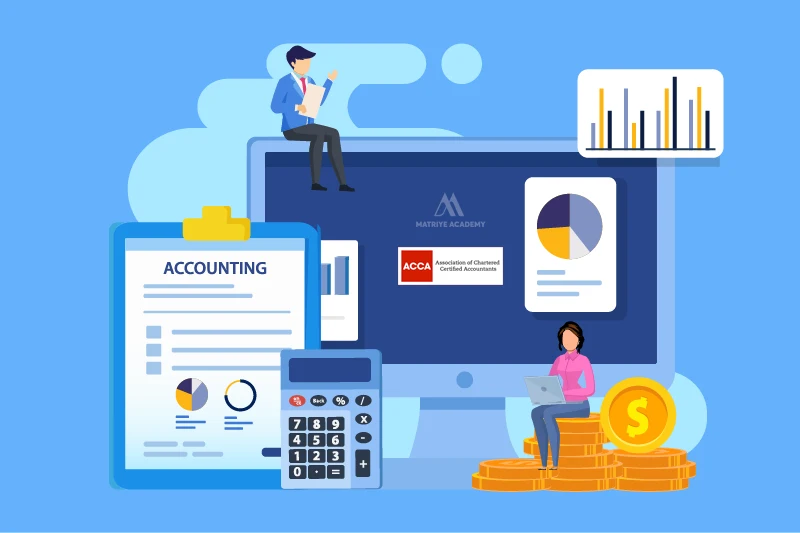
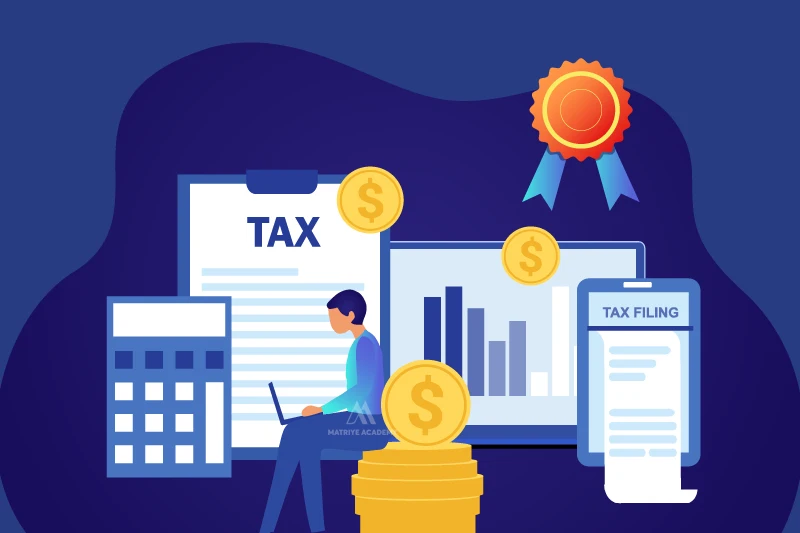
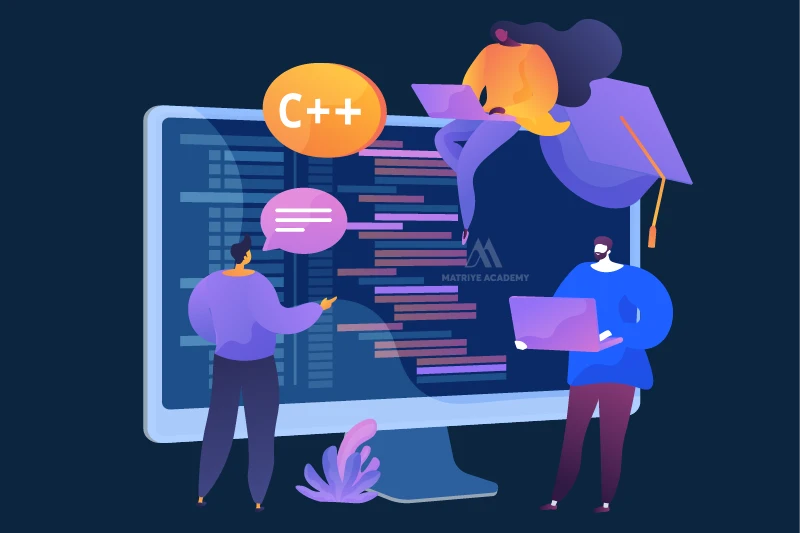
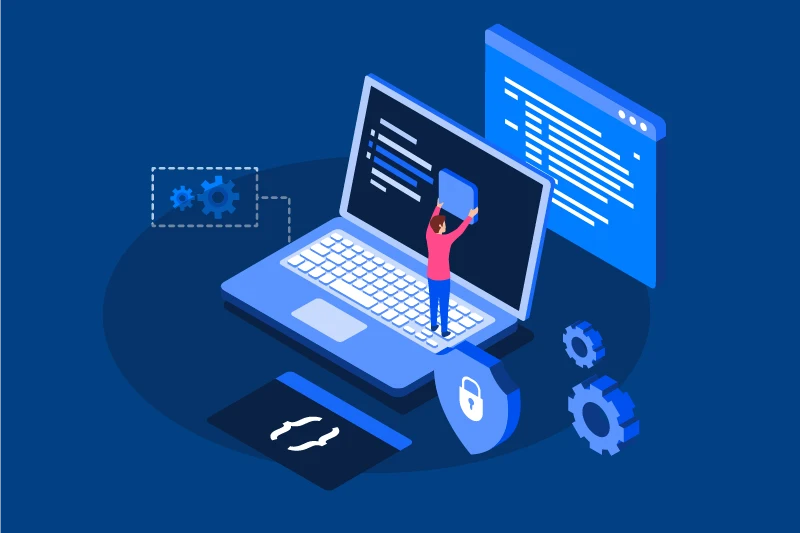
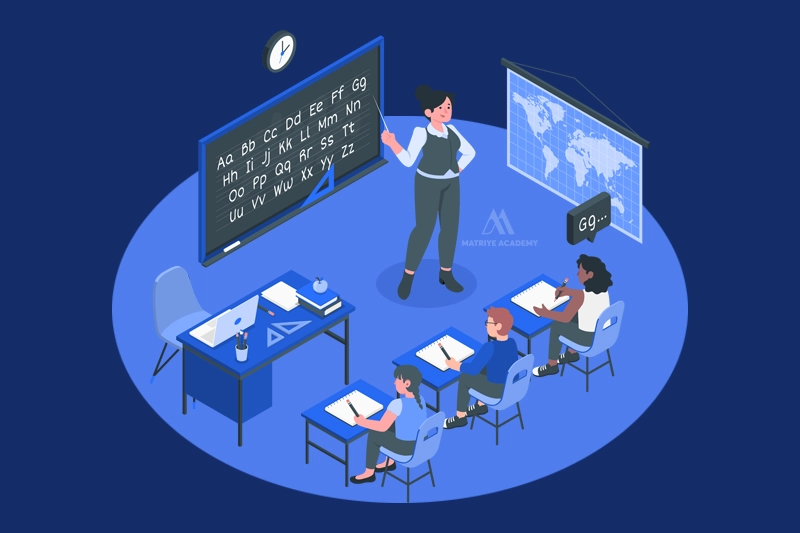
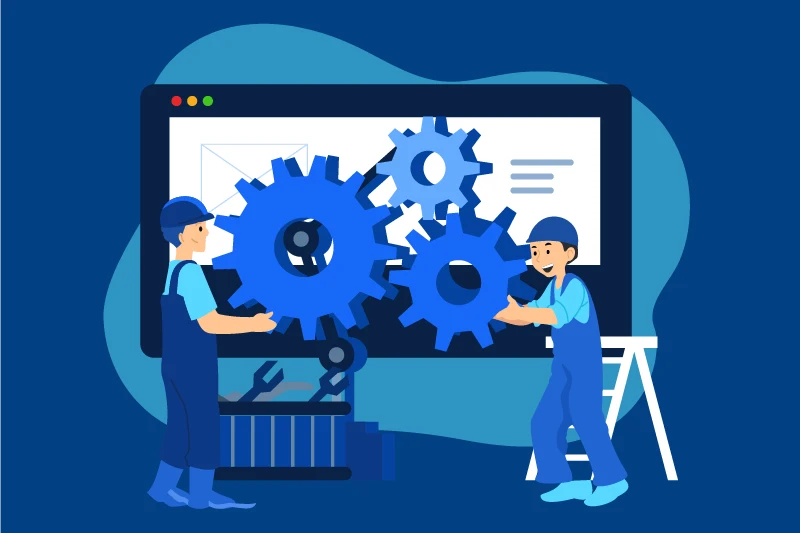


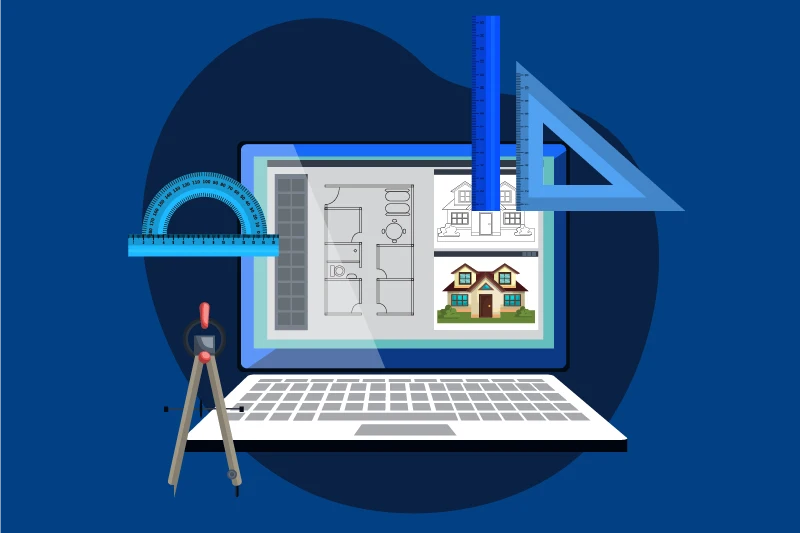
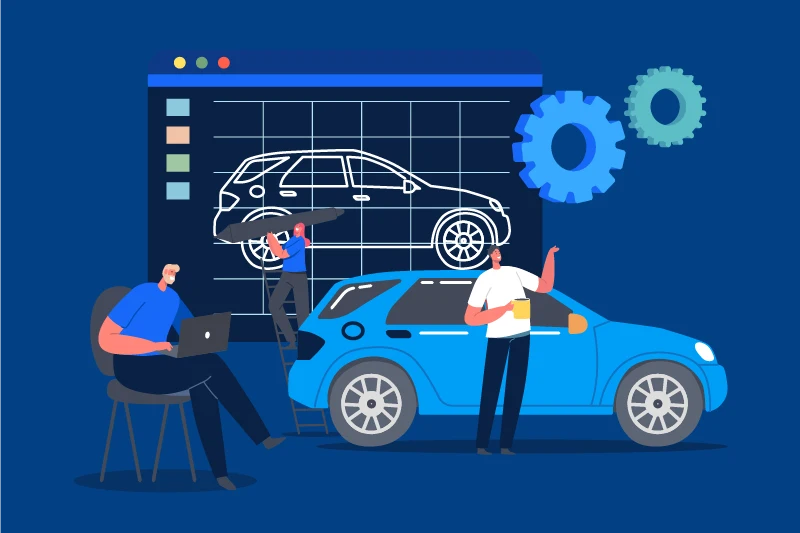
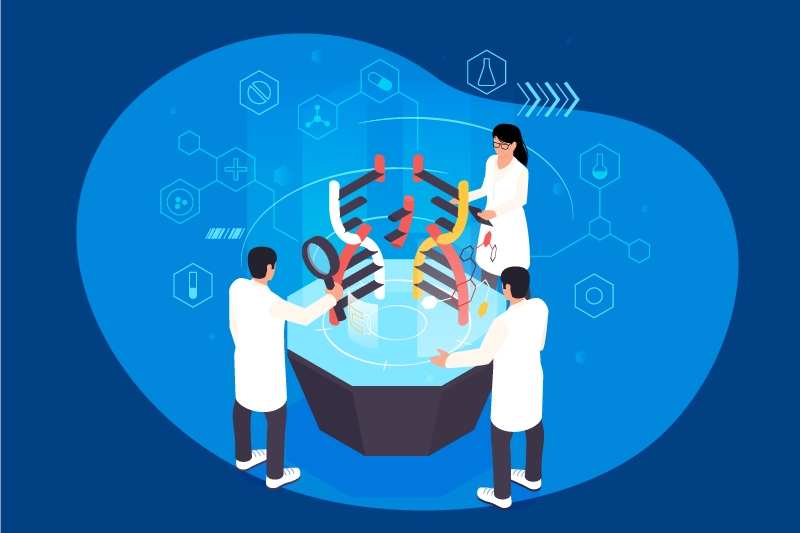

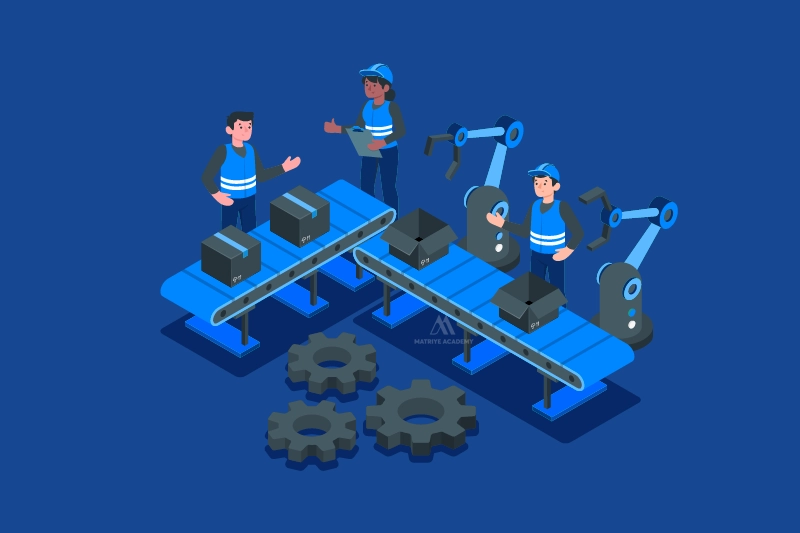
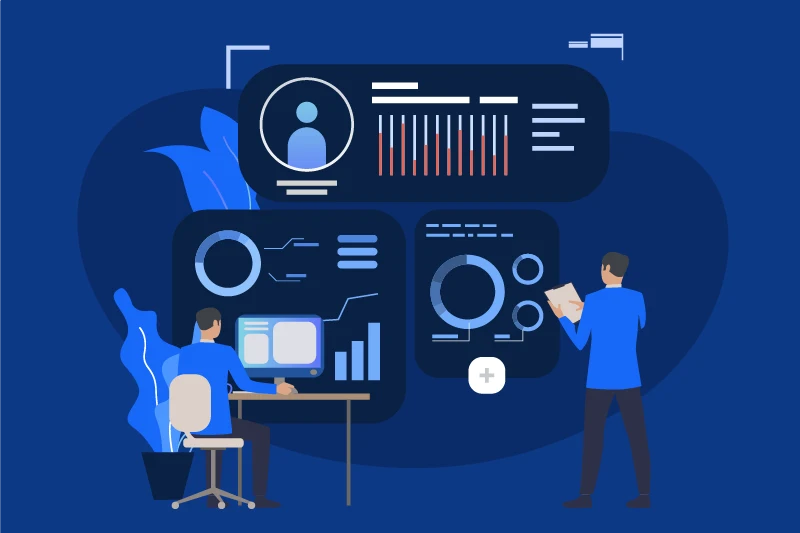
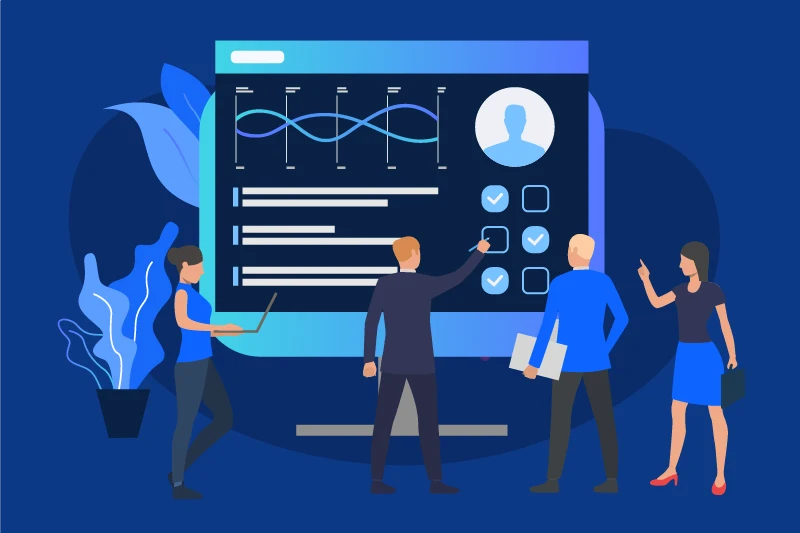



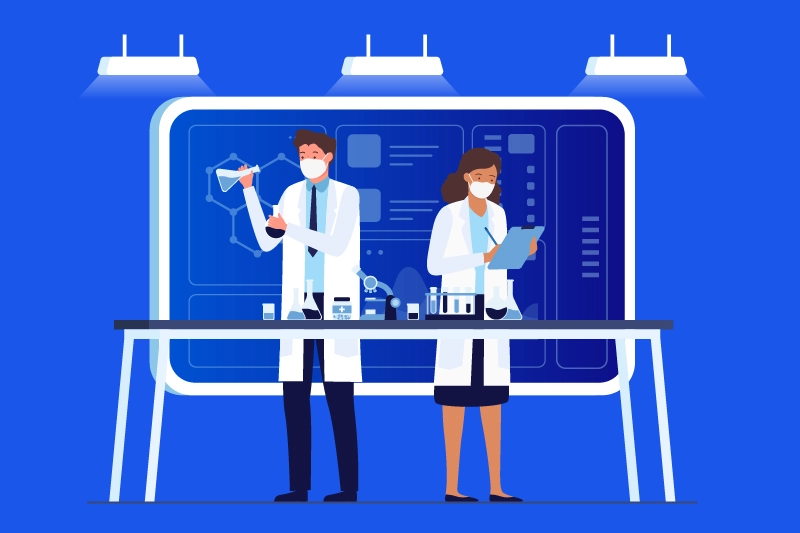
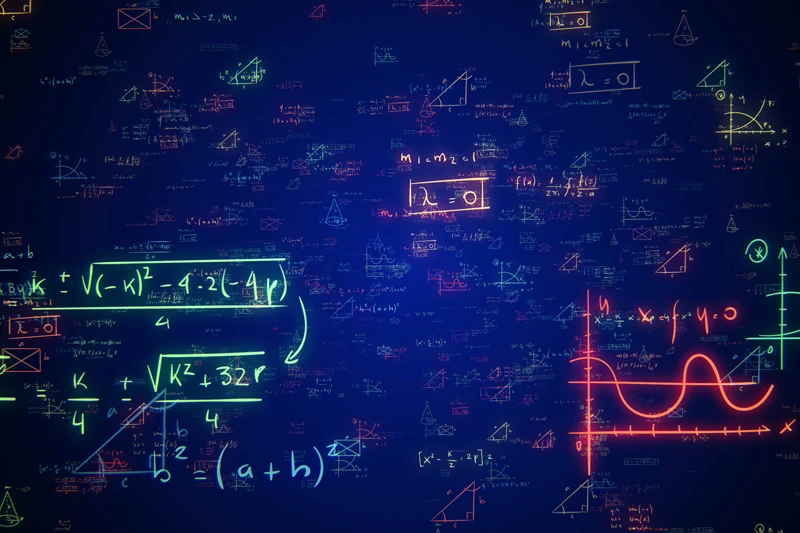
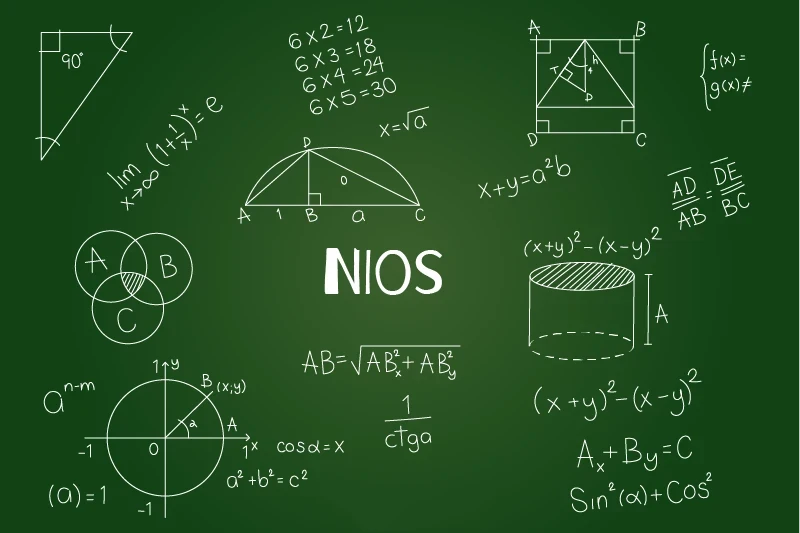
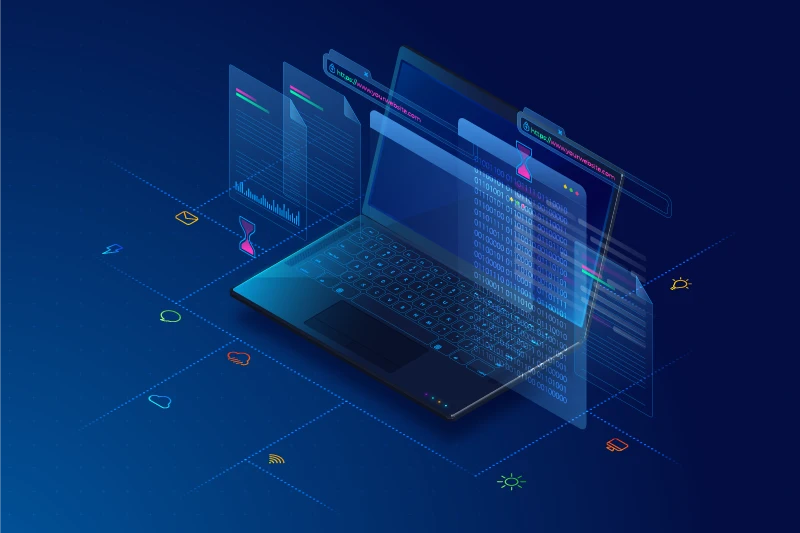

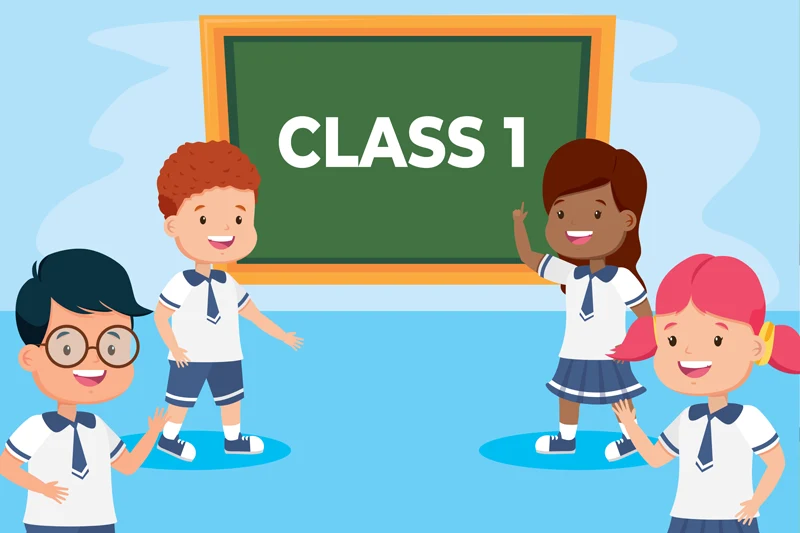

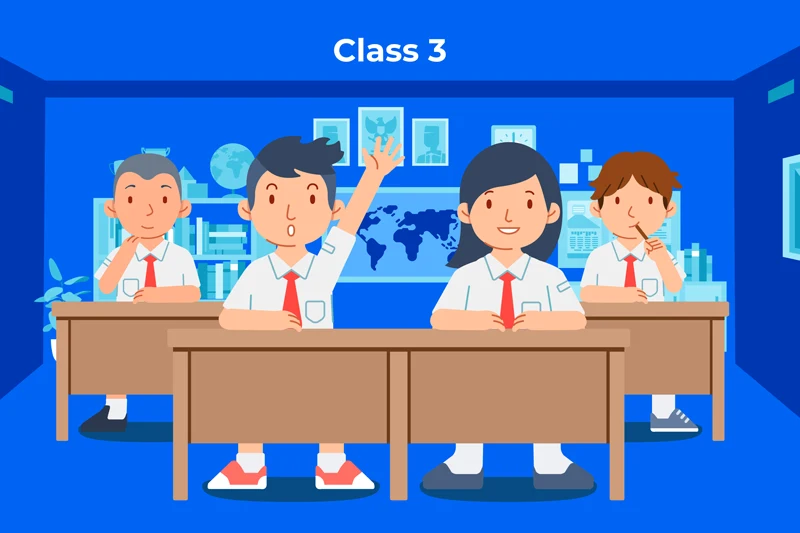
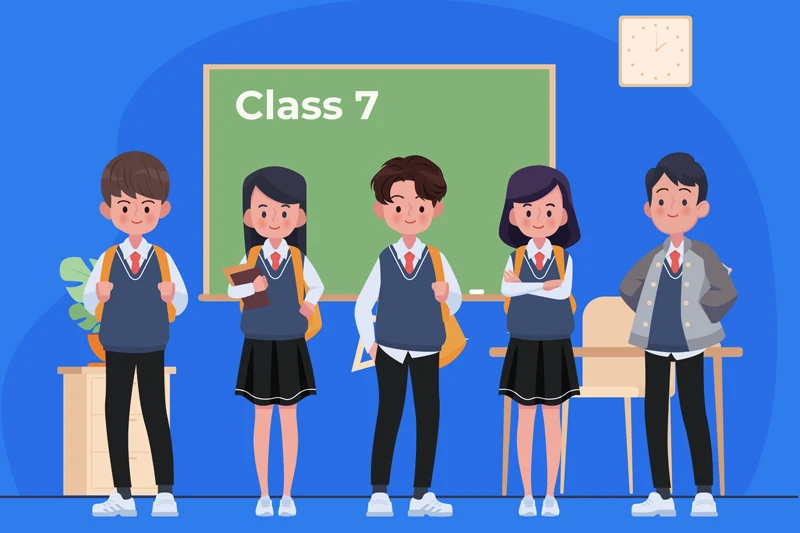
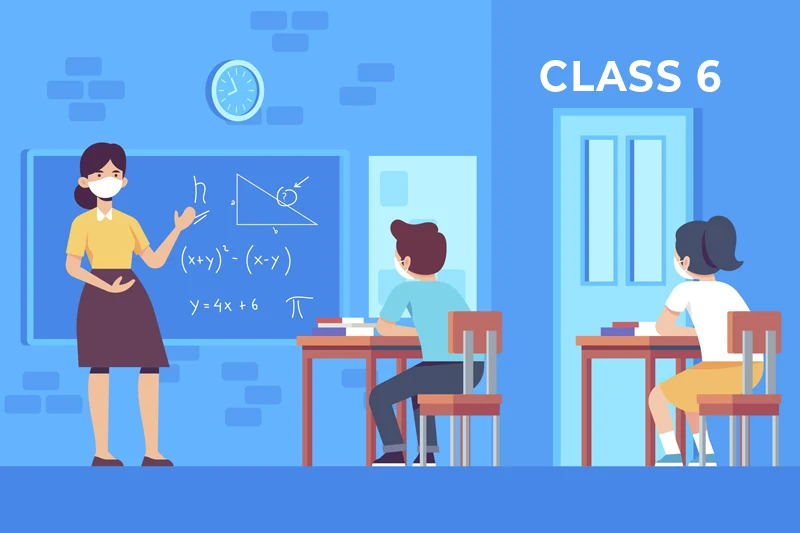
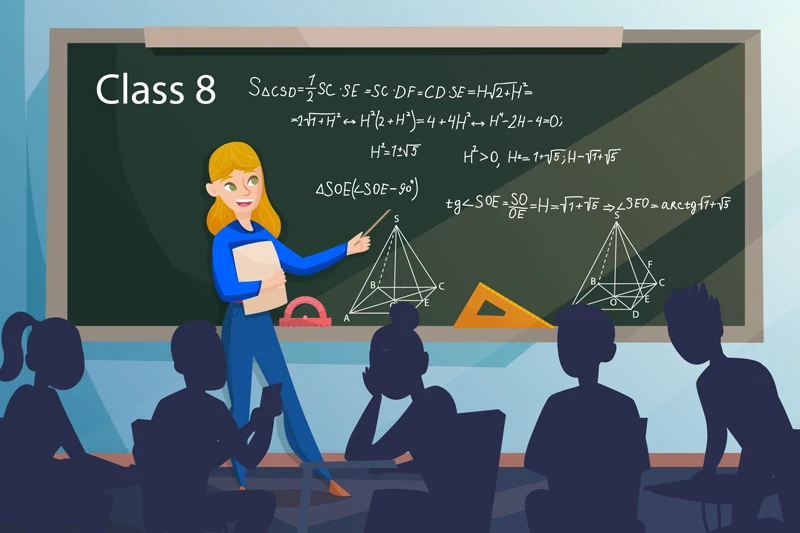




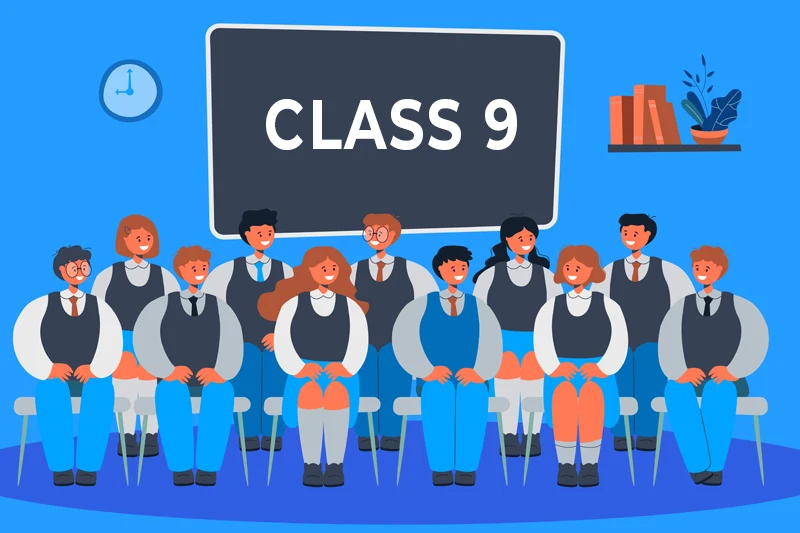
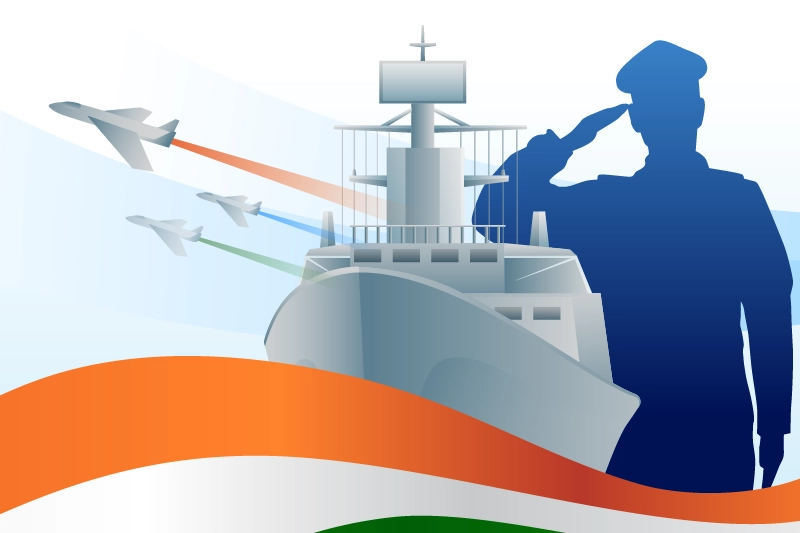
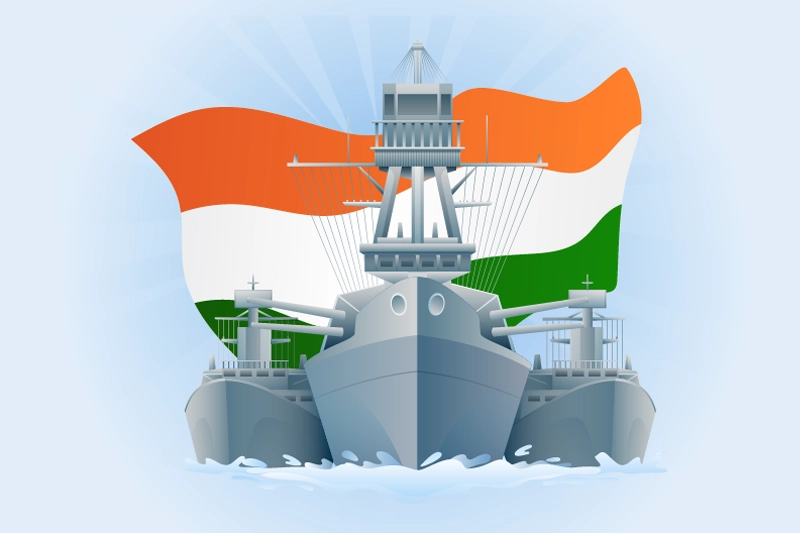



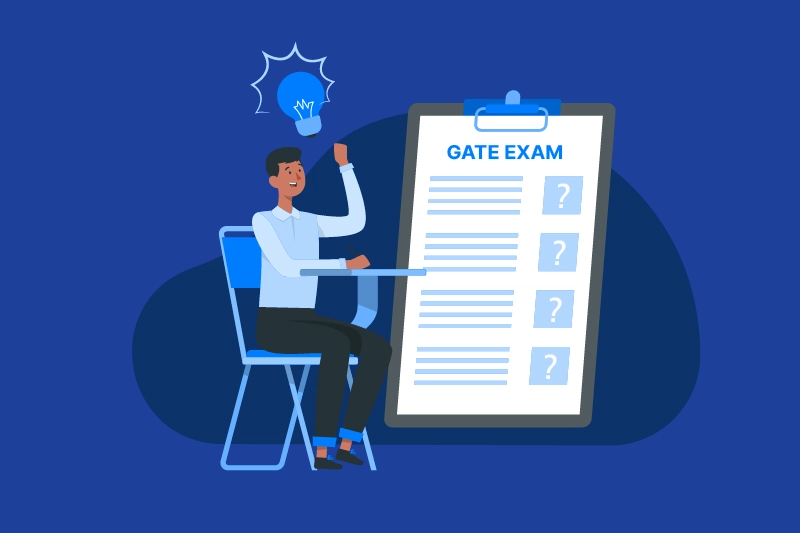
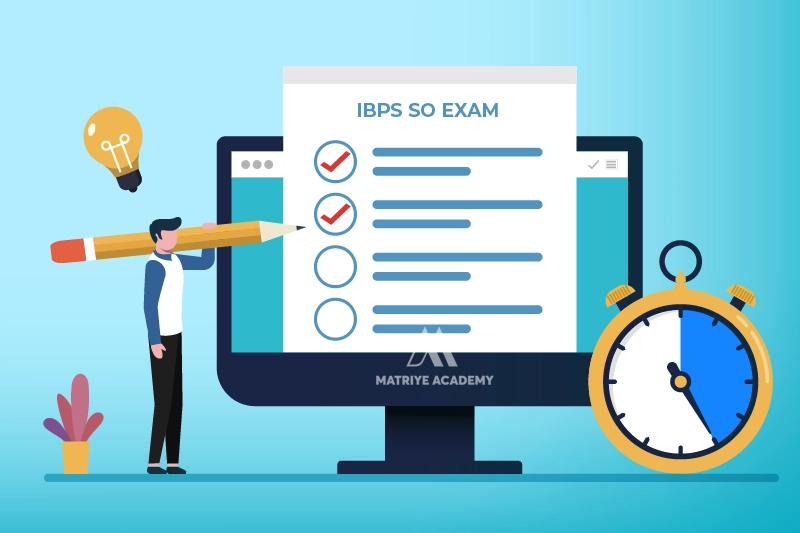
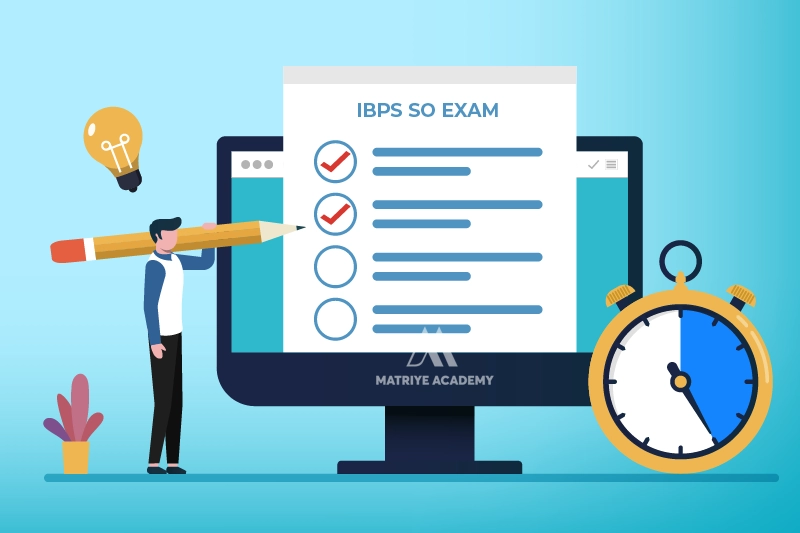

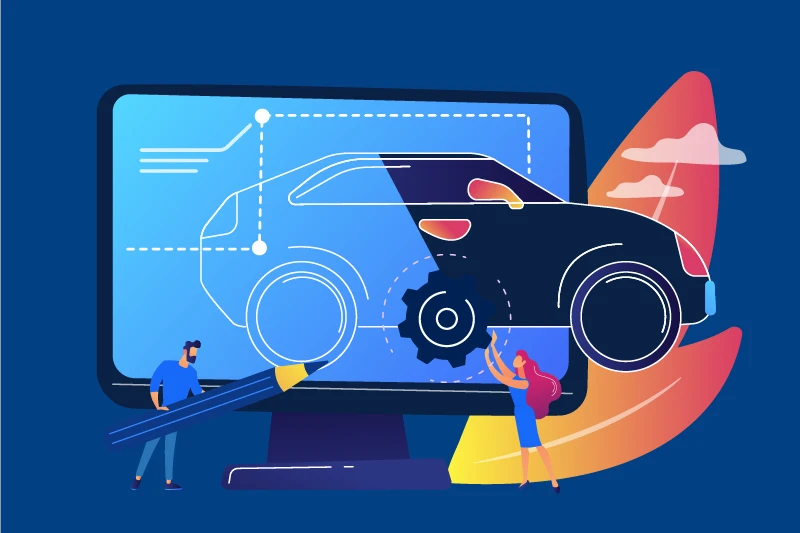
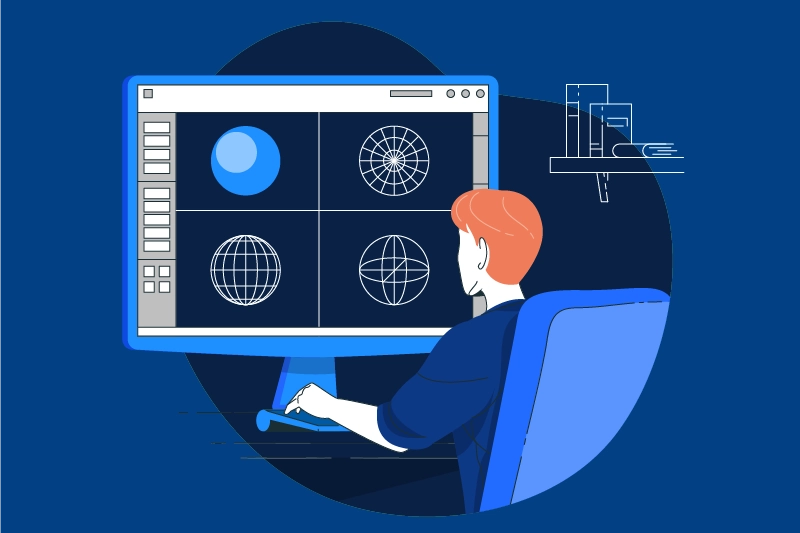


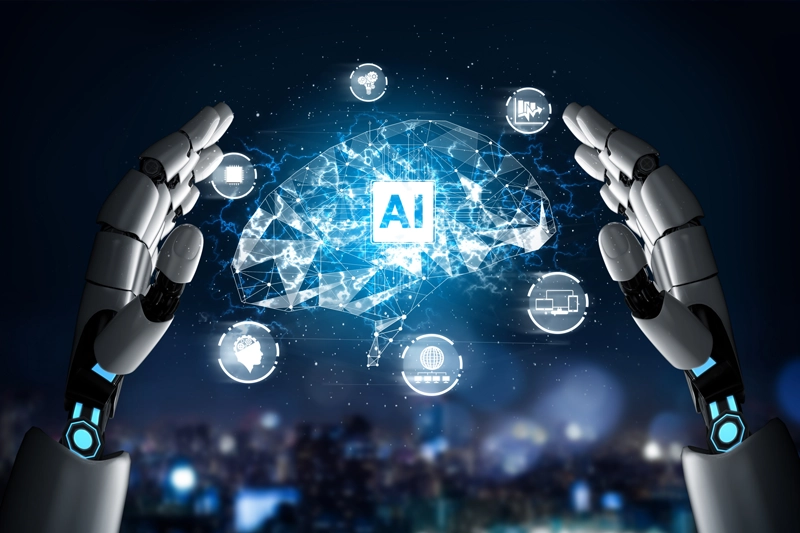
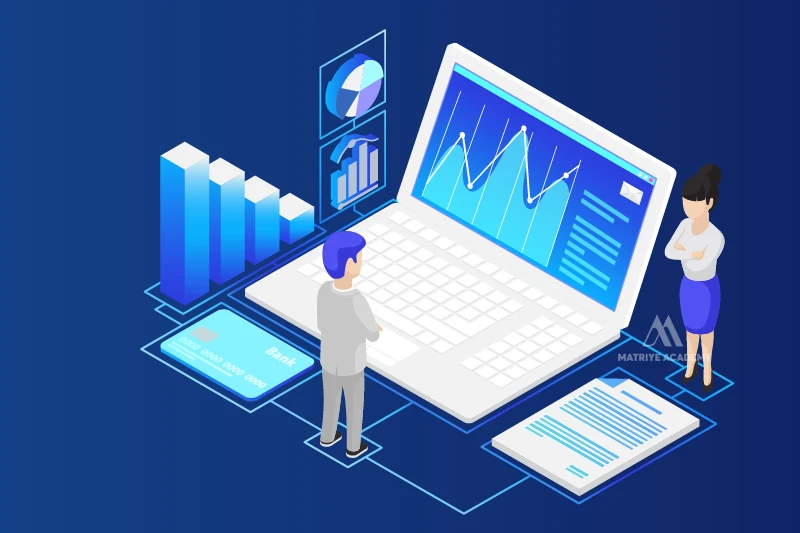
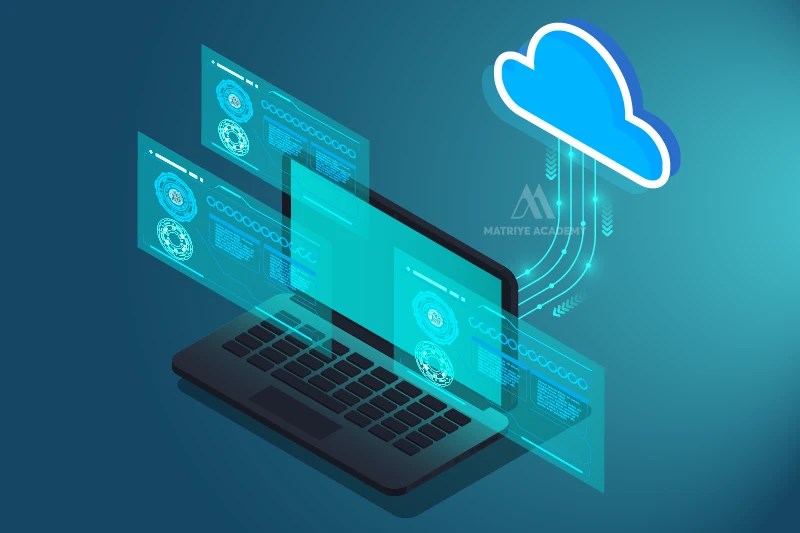
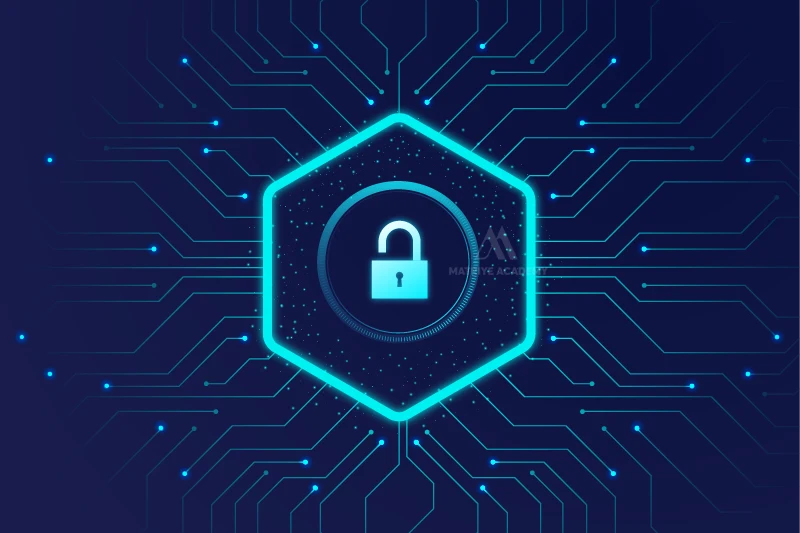

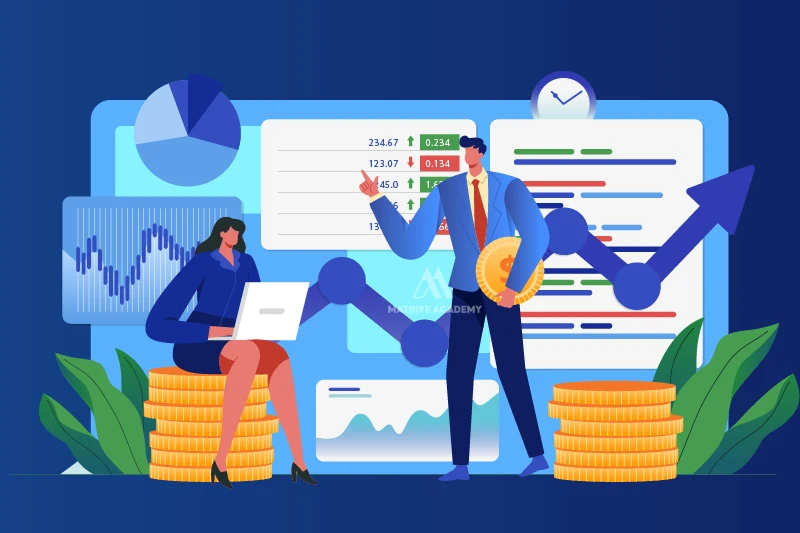
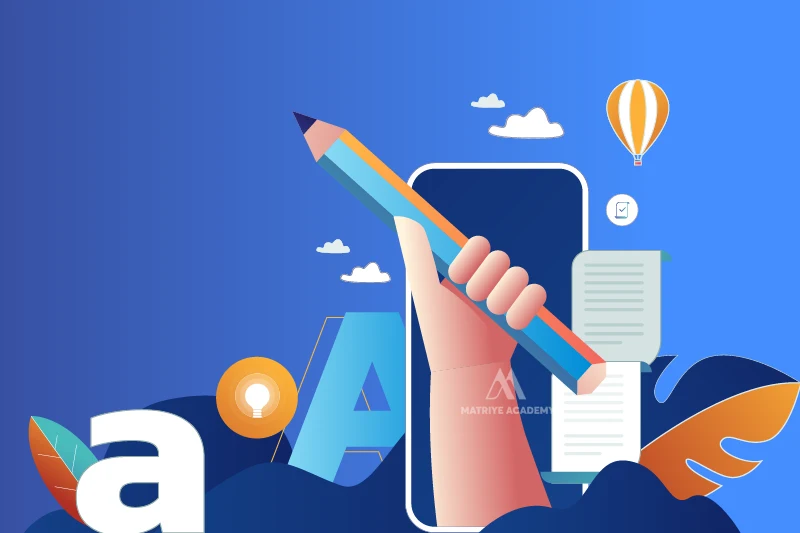

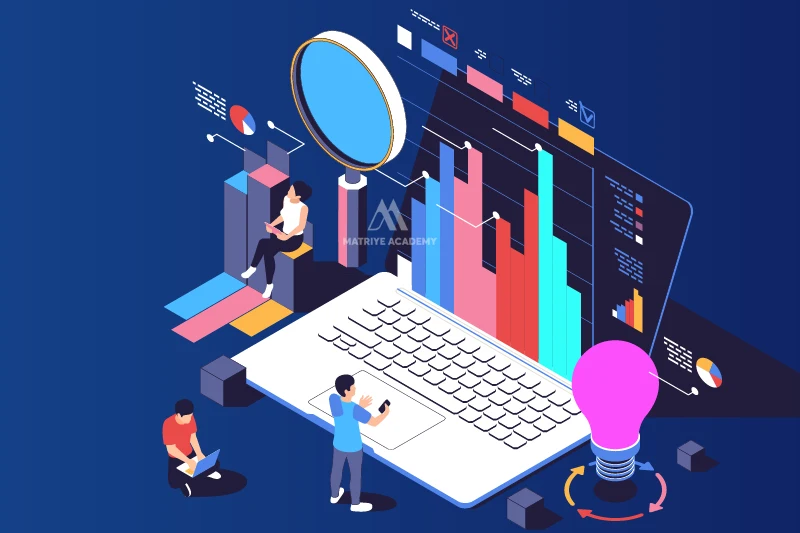



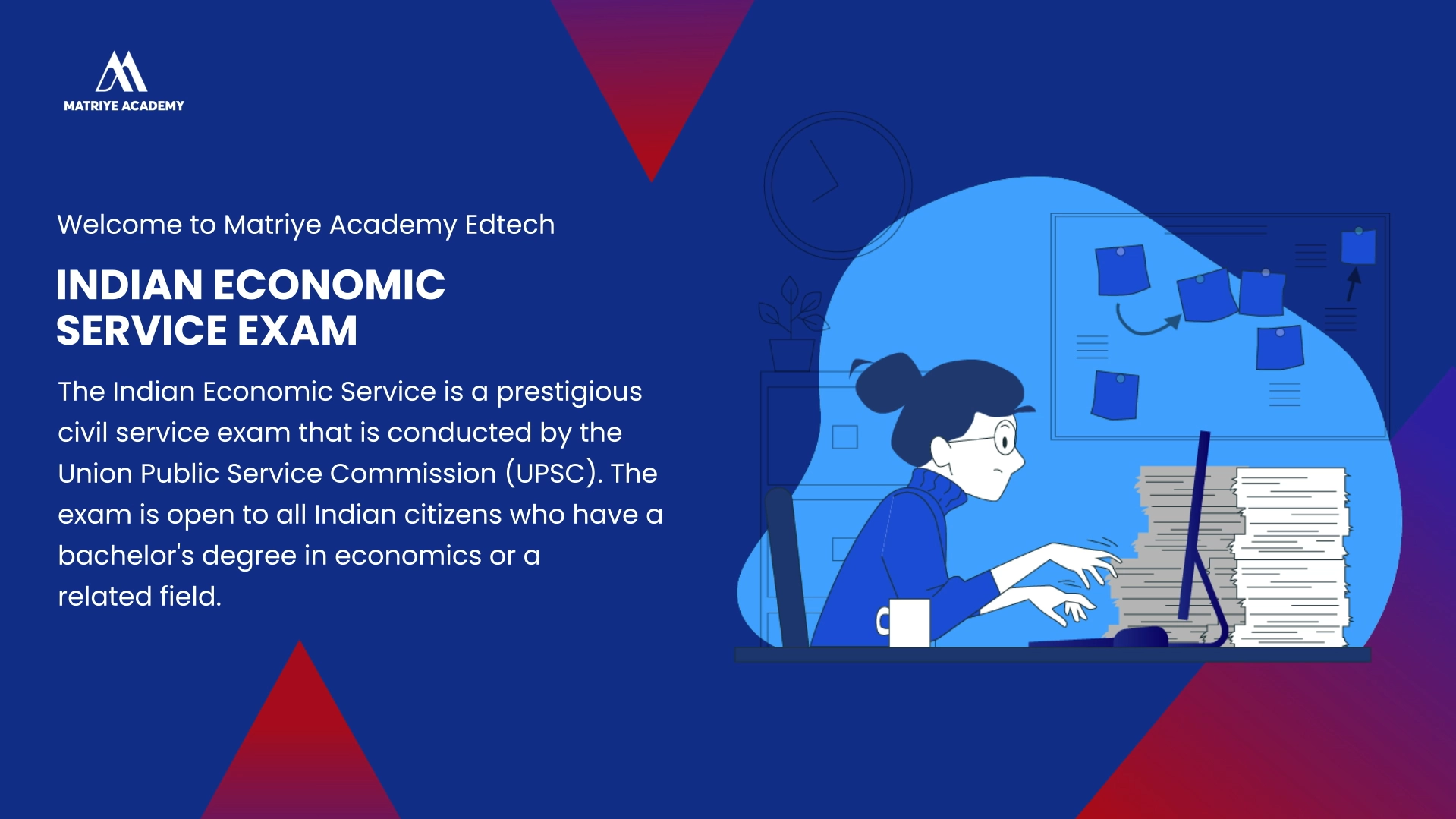


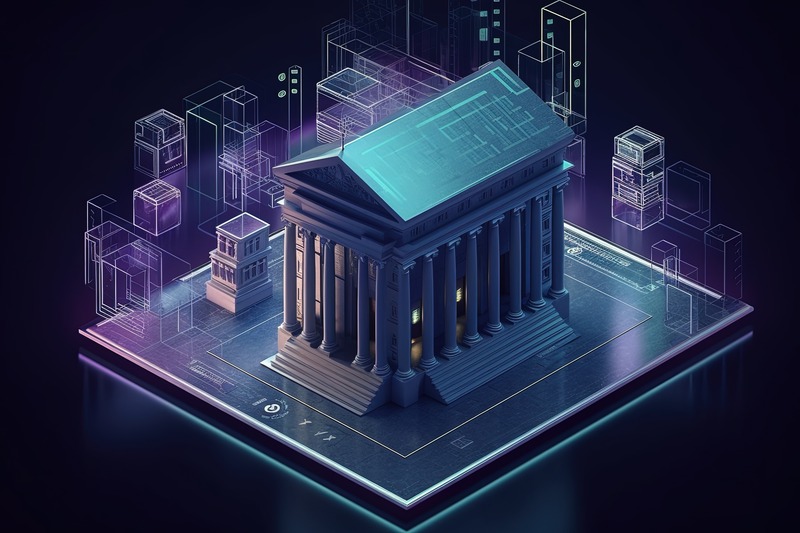
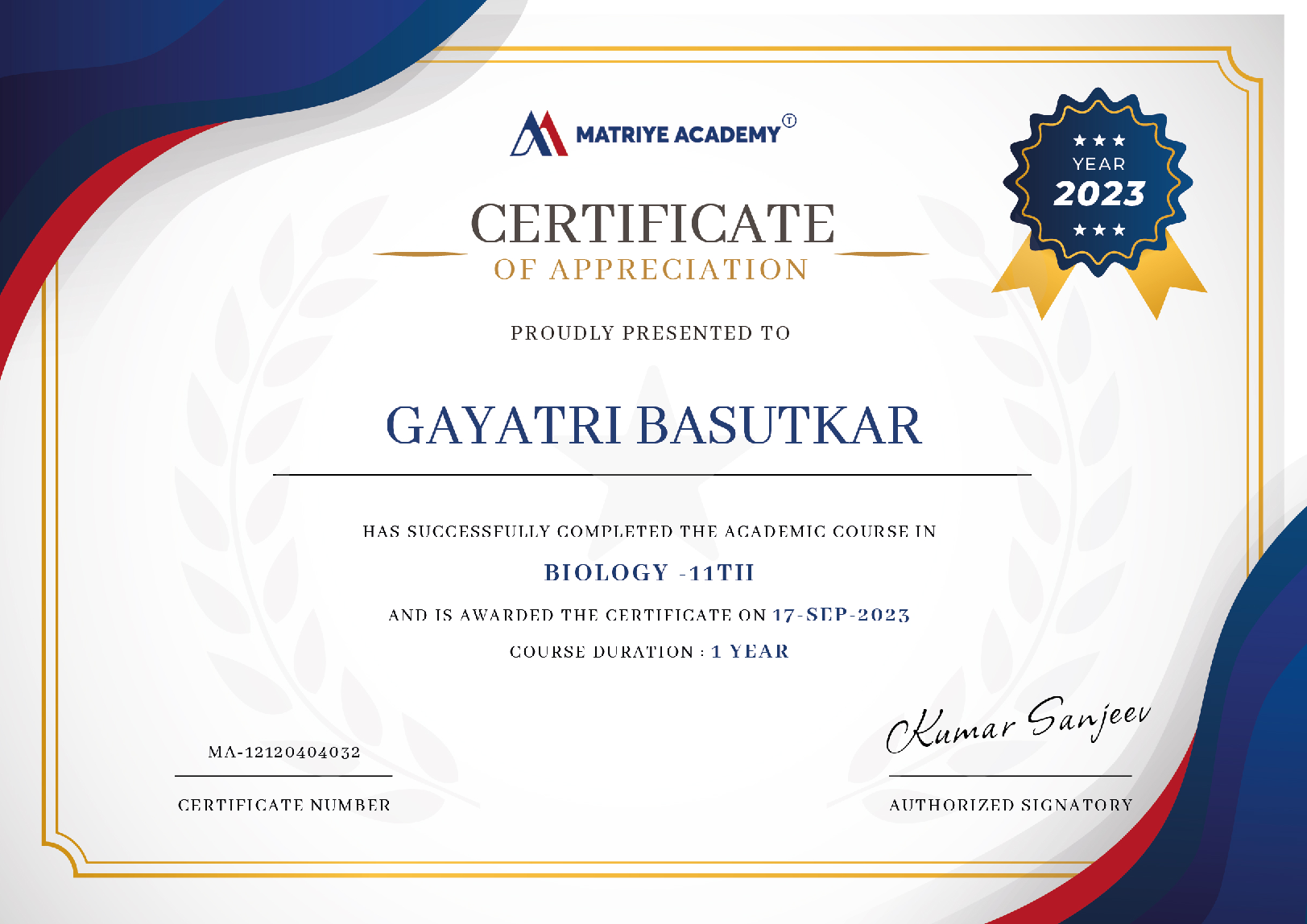





Leave A Comment